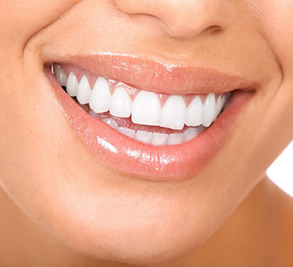Porcelain Crowns
Porcelain crowns act to encircle a damaged tooth, and function to replace the tooth structure up to the gum line. The crown essentially replaces the defective, broken or fracturing enamel of the tooth providing support to the underlying structure, and allowing it to again function safely.
Indications

Porcelain crowns are also important for protection after root canal therapy. After treatment, the teeth have a tendency to become brittle, leaving them vulnerable to breaking or fracture. Placing a porcelain crown can restore function and strength to a tooth after the root canal therapy.
Acting as support for bridges is another important role of porcelain crowns. When placing a bridge to replace missing teeth, adjacent teeth require crowns to be used as anchors for the prosthetic. Their function in this capacity, offers patients missing teeth, a permanent solution.
Porcelain crowns also play an integral role in cosmetic dentistry. When a tooth has become poorly shaped or extremely discolored, a porcelain crown can provide a solid solution. Crowns can also be used to correct alignment and spacing issues of the teeth.
Video Education
Advantages
The material also offers strength and resilience, giving dental patients long lasting results. Porcelain crowns have a tenacious ability to bond to teeth, adding strength to the patient’s bite.
In most cases, it is nearly impossible to distinguish natural teeth from their porcelain counterparts.
Placing The Restoration
The process of installing porcelain crowns is usually accomplished over two office visits. Local anesthetic will normally accompany this type of procedure.
In preparation for placement of porcelain crowns, a thin layer of enamel is removed from the tooth. An impression is then taken, in order to get an exact measurement of the tooth and its surrounding space. The dentist will then place a transitional acrylic crown to protect the tooth and surrounding tissues. This will be worn until your permanent porcelain crown can be created in the laboratory.
During the time while your permanent porcelain crown is being manufactured, be sure to practice proper dental hygiene. Home cleaning and care is critical to maintaining health of your mouth until the permanent crown can be placed. If the transitional crown becomes loose, make sure to retain or reset its placement until you can make it to the office for repair.
When your porcelain crown is ready, an appointment will be scheduled for fitting. The temporary crown will be removed and the area will be cleaned. The dentist will check the fit, placement and bite of the new crown for accuracy before it is cemented into place.
Maintenance
Porcelain crowns are quite easy to maintain. Their function and needs are very close to your natural teeth and can be maintained in the same fashion. Brushing twice daily with fluoride toothpaste and regular flossing will help to ensure a long lasting porcelain crown.

